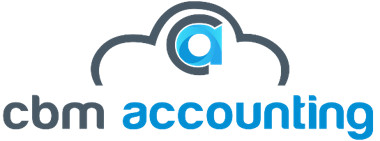Financial management is the most important element of small business operations in the UK. Sound accounting is responsible for compliance with taxation rules, monitoring business performance, and informing decision-making.
Setting Up Your Accounting System:
Choosing the right accounting system is crucial. Consider these options:
- Spreadsheets: Suitable for very small businesses with simple finances. However, they can become cumbersome as your business grows.
- Cloud-Based Accounting Software: Popular and accessible, these platforms offer features like invoicing, expense tracking, and bank reconciliation. Examples include Xero, QuickBooks Online, and Free Agent.
- Desktop Accounting Software: Traditional software installed on your computer. May be suitable for businesses with more complex needs.
-
Key Accounting Tasks:
- Bookkeeping: Recording your financial transactions on a daily basis. Accuracy is paramount!
- Invoicing: Sending and generating professional invoices to customers. Make sure they contain all the information they need.
- Expense Tracking: Maintaining records of all your business expenses. This is crucial for tax purposes and knowing your profitability.
- Bank Reconciliation: Periodically comparing your bank statements with your accounting records to spot any discrepancies.
- Payroll: You’ll need to handle payroll if you have staff to pay, pay wages, deduct National Insurance and tax, and send reports to HMRC.
- VAT: If you’re VAT-registered, you’ll be required to add and recover VAT on your sales, recover VAT on your purchases, and send regular VAT returns to HMRC. (See our separate blog post for more information on VAT).
- Tax: Understanding your tax obligations is essential. This includes Corporation Tax (for limited companies), Income Tax (for sole traders and partnerships), and potentially other taxes depending on your business activities.
-
Essential Financial Reports:
- Profit and Loss Statement (Income Statement): Shows your business’s revenue, expenses, and profit (or loss) over a specific period.
- Balance Sheet: Provides a snapshot of your business’s financial position at a specific point in time, showing your assets, liabilities, and equity.
- Cash Flow Statement: Tracks the movement of cash both into and out of your business. Crucial for understanding your cash flow and ensuring you have enough money to meet your obligations.
Budgeting and Cash Flow Management:
Managing cash flow is essential to keep the business running smoothly. Strategies include:
- Monitoring receivables and ensuring timely payments.
- Controlling costs and reducing unnecessary expenses.
- Setting aside funds for taxes and emergencies.
Creating a realistic budget can help businesses plan for future expenses and investments.
-
Tax Obligations for Small Businesses:
- National Insurance: Pay National Insurance contributions for yourself and your employees (if applicable).
- Income Tax: Sole traders pay tax on their business profits via Self-Assessment.
- Corporation Tax: Limited companies must pay tax on their profits, currently at 25% (2023/24).
- Value Added Tax (VAT): If turnover exceeds £85,000, VAT registration is required, with standard rates at 20%.
-
Key Accounting Principles:
- Accrual Accounting: Recognize revenue when it’s earned, not necessarily when cash is received, and recognize expenses when they’re incurred, not necessarily when cash is paid.
- Matching Principle: Match expenses with the revenues they generate.
- Consistency: Use the same accounting methods consistently from one period to the next.
-
Making Tax Digital (MTD):
Most businesses are now required to keep digital records and submit their tax returns using MTD-compatible software.
-
Hiring an Accountant vs. DIY Accounting
Small business owners can choose to manage accounting themselves or hire an accountant.
- DIY Accounting: Suitable for sole traders and very small businesses using software.
- Hiring an Accountant: Recommended for businesses with complex finances, VAT registration, or payroll needs.
-
Tips for Small Business Accounting:
- Start Early: Don’t leave accounting until the last minute. Regular bookkeeping is much easier than trying to catch up later.
- Be Organized: Keep all your financial documents organized and accessible.
- Use Technology: Utilize accounting software to automate tasks and improve accuracy.
- Seek Professional Advice: Consider hiring an accountant or bookkeeper, especially as your business grows. They can provide valuable guidance and ensure you stay compliant.
- Stay Informed: Keep up to date with changes in tax laws and regulations.
Conclusion:
Accounting plays a significant role in small business for companies within the UK. Having good accounts allows the companies to do a great deal to benefit and achieve business success with financial management simplified with accounting tools or through consultancy assistance. For further information, let CBM accounting be your trusted partner and handle your accounting.

